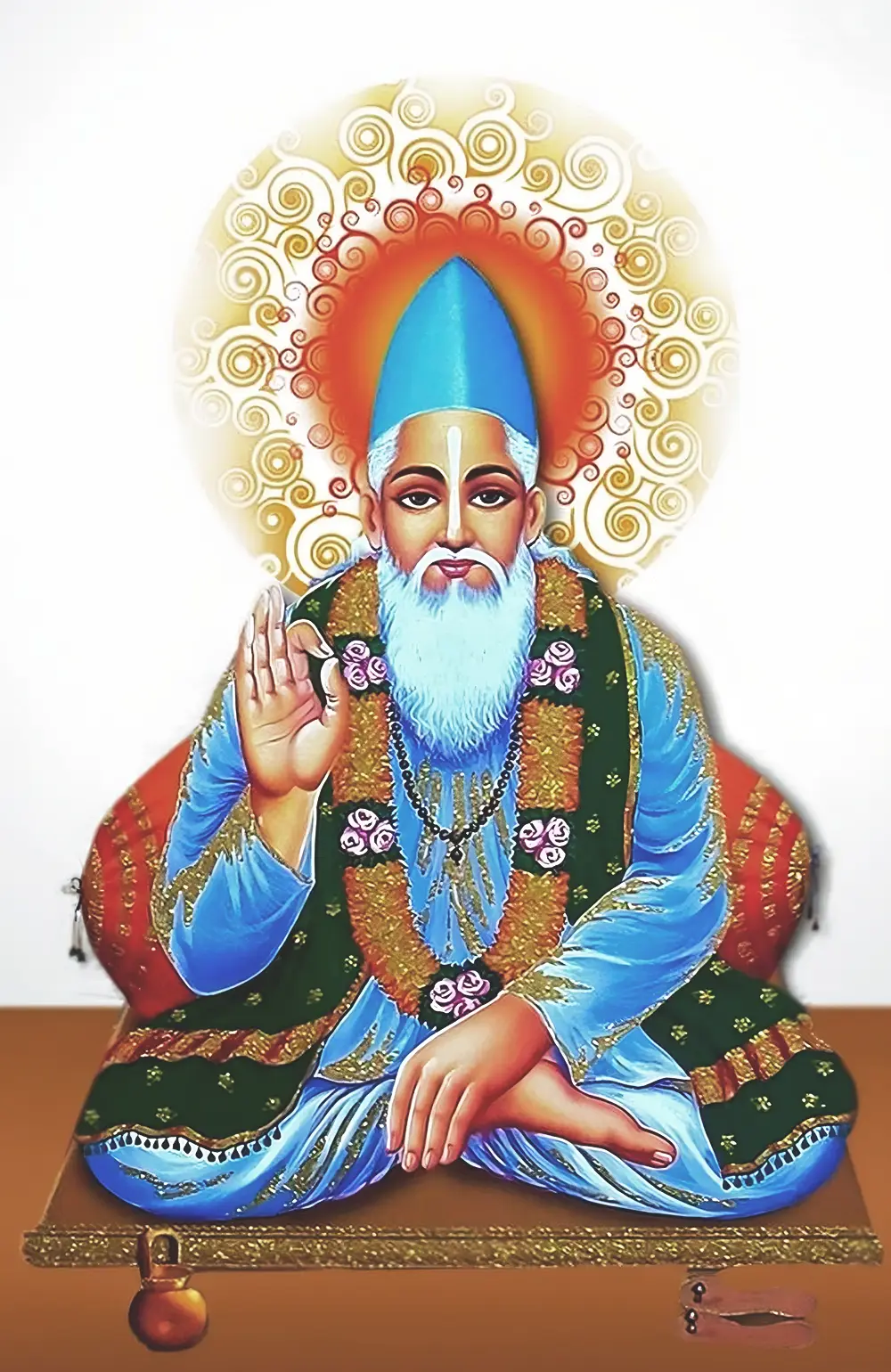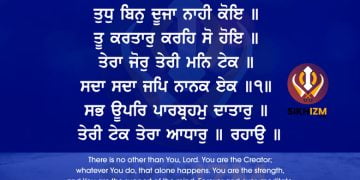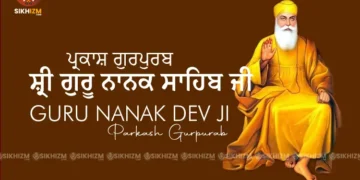Bhagat Kabir holds a unique place in the spiritual and cultural history of India. He was a prominent mystic poet, saint, and social reformer whose teachings continue to inspire millions. His profound insights into the nature of reality, devotion, and humanity are preserved not only in various collections of his work but also significantly within the Guru Granth Sahib, the holy scripture of Sikhism. Bhagat Kabir Jayanti marks the birth anniversary of this revered figure, providing an opportunity to reflect on his life and timeless wisdom.
Kabir Jayanti 2025 Date
Kabir Jayanti in 2025 will be observed on:
📅 11 June 2025, Wednesday
It falls on the full moon day (Purnima) of the Hindu month of Jyeshtha. This date marks the appearance day (Prakat Diwas) of Bhagat Kabir Ji.
Who Was Bhagat Kabir Ji?
Bhagat Kabir (1398–1518 CE) was a spiritual reformer, poet, and mystic born in Varanasi, India. Though widely believed to be born into a Muslim weaver (Julaha) family, a popular legend says he appeared miraculously on a lotus flower in Lahartara Lake.
The sources provide specific dates for his life:
- Birth: He was born in 1398 AD or 1455 Bikrami.
- Death: He is stated to have passed away in 1518 AD or 1575 Bikrami.
- His lifespan is mentioned as being around 120 years.
He transcended religion and caste, spreading the message of Ek Onkar—the One Universal Creator. His verses are part of the Guru Granth Sahib Ji, the holy scripture of Sikhism, and his teachings remain timeless in today's age.

Bhagat Kabir's Spiritual Journey and Philosophy:
Bhagat Kabir was a great religious preacher and mystic poet. His teachings had a deep impact on Indian thought. He is described as a reformer, whose teachings were simple and direct. Key aspects of his philosophy include:
- Naam Simran (Remembering God's Name): He placed great emphasis on remembering God's name as a central practice.
ਰਾਮੁ ਸਿਮਰੁ ਪਛੁਤਾਹਿਗਾ ਮਨ ॥ ਪਾਪੀ ਜੀਅਰਾ ਲੋਭੁ ਕਰਤੁ ਹੈ ਆਜੁ ਕਾਲਿ ਉਠਿ ਜਾਹਿਗਾ ॥੧॥ - Inner Devotion vs. Outer Rituals: Kabir critiqued outward shows of religion and external rituals. He stressed the importance of inner devotion and spiritual purity (ਆਤਮਕ ਪਾਕੀਜ਼ਗੀ). He believed that external practices were secondary to inner devotion.
- The Importance of the Guru: He highlighted the significant role of a spiritual teacher (Guru) in guiding individuals.
- Control of the Mind (ਮਨ): A central theme in his teachings is the control and transformation of the mind. The mind is described as restless and a source of suffering. Conquering the mind is crucial for spiritual progress.
ਇਹੁ ਮਨੁ ਸਕਤੀ ਇਹੁ ਮਨੁ ਸੀਉ ॥ ਇਹੁ ਮਨੁ ਪੰਚ ਤਤ ਕੋ ਜੀਉ ॥
ਇਹੁ ਮਨੁ ਲੇ ਜਉ ਉਨਮਨਿ ਰਹੈ ॥ ਤਉ ਤੀਨਿ ਲੋਕ ਕੀ ਬਾਤੈ ਕਹੈ ॥੩੩॥ - Overcoming Maya (Illusion) and Ego (ਹਉਮੈ): Kabir taught about Maya as the illusion that distracts the mind and prevents connection with God. Overcoming ego is also essential for transformation.
ਦੇਖੌ ਭਾਈ ਗ੍ਯ੍ਯਾਨ ਕੀ ਆਈ ਆਂਧੀ ॥ ਸਭੈ ਉਡਾਨੀ ਭ੍ਰਮ ਕੀ ਟਾਟੀ ਰਹੈ ਨ ਮਾਇਆ ਬਾਂਧੀ ॥੧॥ - Seeking God Within: He emphasized that God is not found in external places of worship but within oneself. The mind is seen as the place where God can be realised.
ਨਾ ਇਹੁ ਮਾਨਸੁ ਨਾ ਇਹੁ ਦੇਉ ॥ ਨਾ ਇਹੁ ਜਤੀ ਕਹਾਵੈ ਸੇਉ ॥
ਨਾ ਇਹੁ ਜੋਗੀ ਨਾ ਅਵਧੂਤਾ ॥ ਨਾ ਇਸੁ ਮਾਇ ਨ ਕਾਹੂ ਪੂਤਾ ॥੧॥ - Inner Transformation: His philosophy encourages a journey of inner change and realization.
One of the central tenets of Kabir's teachings was the concept of "Sant Mat" or the path of the saints. He emphasized the need for personal experience and direct realization of the divine, rather than blind adherence to scriptures or dependence on intermediaries. Kabir advocated a form of spirituality that was experiential, intuitive, and free from the trappings of organized religion.
ਕਬੀਰ ਸੰਤਨ ਕੀ ਝੁੰਗੀਆ ਭਲੀ ਭਠਿ ਕੁਸਤੀ ਗਾਉ ॥
ਆਗਿ ਲਗਉ ਤਿਹ ਧਉਲਹਰ ਜਿਹ ਨਾਹੀ ਹਰਿ ਕੋ ਨਾਉ ॥ਕਬੀਰ ਸੰਤ ਮੂਏ ਕਿਆ ਰੋਈਐ ਜੋ ਅਪੁਨੇ ਗ੍ਰਿਹਿ ਜਾਇ ॥
ਰੋਵਹੁ ਸਾਕਤ ਬਾਪੁਰੇ ਜੁ ਹਾਟੈ ਹਾਟ ਬਿਕਾਇ ॥ਕਬੀਰ ਸੰਤ ਕੀ ਗੈਲ ਨ ਛੋਡੀਐ ਮਾਰਗਿ ਲਾਗਾ ਜਾਉ ॥
ਪੇਖਤ ਹੀ ਪੁੰਨੀਤ ਹੋਇ ਭੇਟਤ ਜਪੀਐ ਨਾਉ ॥ਕਬੀਰ ਸੰਤੁ ਨ ਛਾਡੈ ਸੰਤਈ ਜਉ ਕੋਟਿਕ ਮਿਲਹਿ ਅਸੰਤ ॥
ਮਲਿਆਗਰੁ ਭੁਯੰਗਮ ਬੇਢਿਓ ਤ ਸੀਤਲਤਾ ਨ ਤਜੰਤ ॥
Another key aspect of Kabir's philosophy was his unwavering commitment to the unity of all beings. He rejected the artificial divisions created by society and sought to unite people through the power of love and compassion. Kabir's message of universal brotherhood and equality continues to be highly relevant in today's world, where divisions based on religion, caste, and nationality often breed hatred and discord.
ਕਬੀਰ ਮੇਰੀ ਜਾਤਿ ਕਉ ਸਭੁ ਕੋ ਹਸਨੇਹਾਰੁ ॥
ਬਲਿਹਾਰੀ ਇਸ ਜਾਤਿ ਕਉ ਜਿਹ ਜਪਿਓ ਸਿਰਜਨਹਾਰ ॥ਕਬੀਰ ਸੂਖੁ ਨ ਏਂਹ ਜੁਗਿ ਕਰਹਿ ਜੁ ਬਹੁਤੈ ਮੀਤ ॥
ਜੋ ਚਿਤੁ ਰਾਖੈ ਏਕ ਸਿਉ ਤੇ ਸੁਖੁ ਪਾਵਹਿ ਨੀਤ ॥
Celebrating Bhagat Kabir Jayanti
ਕਬੀਰ ਜਗ ਮਹਿ ਚੇਤਿਓ ਜਾਨਿ ਕੈ ਜਗ ਮਹਿ ਰਹਿਓ ਸਮਾਇ ॥
ਜਿਨ ਹਰਿ ਕਾ ਨਾਮੁ ਨ ਚੇਤਿਓ ਬਾਦਹਿ ਜਨਮੇਂ ਆਇ ॥
Bhagat Kabir Jayanti is a day of celebration and reflection, marked by various activities and events that pay homage to Kabir's life and teachings. Devotees gather in temples, ashrams, and community centers to recite Kabir's poetry, sing his bhajans (devotional songs), and engage in discussions about his philosophy. Many cities organize processions and cultural programs that showcase Kabir's teachings through music, dance, and theater.
On this auspicious day, people also visit Kabir's samadhi (final resting place) and seek his blessings. Kabir's samadhi in Varanasi, known as Kabir Chaura, is a place of pilgrimage for millions of followers who seek solace and spiritual guidance. The air is filled with the reverberation of Kabir's timeless verses as devotees chant his poetry and engage in devotional practices. The atmosphere is infused with a sense of divinity and devotion, as people from all walks of life come together in a display of unity and reverence.
The pilgrimage to Kabir's samadhi is not merely a physical journey but a symbolic one as well. It represents a quest for inner transformation and a desire to connect with the essence of Kabir's teachings. Followers believe that by visiting his final resting place, they can absorb the spiritual vibrations and imbibe the wisdom that Kabir embodied.
The celebrations on Bhagat Kabir Jayanti also extend beyond the physical realm. Many individuals take this opportunity to introspect and reflect on the teachings of Kabir in their daily lives. They strive to embody the principles of love, compassion, and unity that he espoused, seeking to dissolve the barriers that separate individuals and communities.
In addition to the traditional observances, modern interpretations of Kabir's teachings have also found expression in various artistic forms. Artists, musicians, and filmmakers draw inspiration from his verses and use their craft to bring his message to a wider audience. Kabir's philosophy, which emphasizes simplicity and direct experience, continues to resonate with creative minds who aim to spread his timeless wisdom in innovative ways.
Bhagat Kabir Jayanti serves as a reminder of the enduring legacy of this remarkable spiritual luminary. His teachings continue to inspire generations, transcending the boundaries of time and space. Kabir's message of inclusivity, inner realization, and universal love resonates with people from all backgrounds, making him a truly unifying force.
As we celebrate Bhagat Kabir Jayanti, let us delve into Kabir's poetry, immerse ourselves in his teachings, and strive to live by the values he espoused. Let us remember that true spirituality lies not in external rituals, but in the awakening of our own consciousness and the recognition of the divinity within ourselves and all beings. May the wisdom of Kabir continue to guide us on our spiritual journey and inspire us to create a world filled with love, compassion, and unity.














